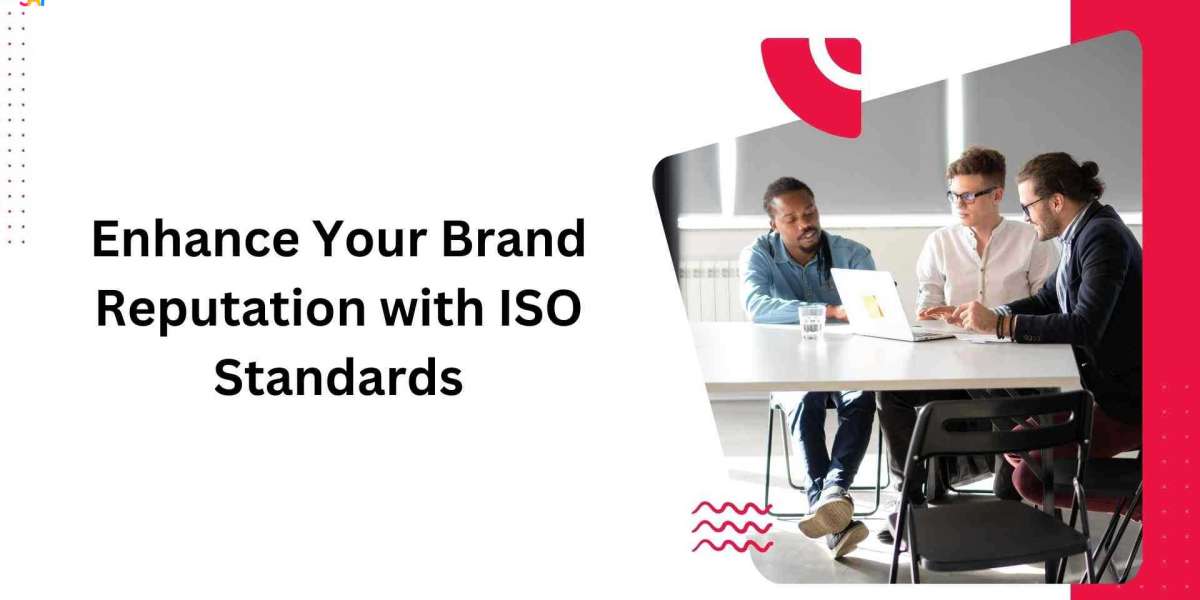In today’s highly competitive market, a strong brand reputation is essential for long-term success. Consumers and stakeholders increasingly seek businesses that are reliable, efficient, and committed to quality. One powerful way to establish and enhance your brand reputation is by adopting ISO Certification standards. These globally recognized standards provide a framework for ensuring quality, safety, efficiency, and sustainability in your business practices. By aligning with ISO standards, companies can demonstrate their dedication to excellence, thereby building trust and credibility with their audience.
What Are ISO Standards?
ISO (International Organization for Standardization) is an independent, non-governmental organization that develops and publishes standards to ensure consistency, quality, and safety across industries. ISO standards cover a wide range of areas, including quality management, environmental sustainability, information security, occupational health, and more. Some of the most widely adopted ISO standards include:
- ISO 9001: Quality Management System (QMS)
- ISO 14001: Environmental Management System (EMS)
- ISO 27001: Information Security Management System (ISMS)
- ISO 45001: Occupational Health and Safety Management System
- ISO 50001: Energy Management System
- ISO 26000: Guidance on Social Responsibility
How ISO Standards Enhance Brand Reputation
1. Demonstrating Commitment to Quality
Achieving ISO certification, particularly ISO 9001 for Quality Management, signals to customers and stakeholders that your company prioritizes delivering high-quality products and services. The ISO 9001 framework ensures continuous improvement, enabling your business to meet and exceed customer expectations. This commitment to quality fosters customer loyalty and positive word-of-mouth, which are critical to building a strong reputation.
2. Building Trust with Stakeholders
ISO certification is a mark of credibility. It reassures stakeholders, including customers, investors, and regulators, that your business adheres to internationally recognized standards. For example, ISO 27001 certification in information security assures clients that their sensitive data is safe with you, building trust and confidence in your operations.
3. Enhancing Customer Satisfaction
ISO standards focus on customer-centric approaches, ensuring that your processes are aligned with customer needs. By implementing systems that emphasize quality, safety, and efficiency, you reduce errors, improve service delivery, and enhance the overall customer experience. Satisfied customers are more likely to recommend your brand, further strengthening your reputation.
4. Promoting Environmental Responsibility
Sustainability is a growing concern among consumers and businesses. ISO 14001 certification for Environmental Management helps companies reduce their environmental impact by adopting sustainable practices. Demonstrating environmental responsibility not only appeals to eco-conscious consumers but also differentiates your brand as a leader in sustainability.
5. Gaining a Competitive Edge
In many industries, ISO certification is a key differentiator that sets you apart from competitors. It signals professionalism and adherence to best practices, giving you an edge in tender processes, client negotiations, and market positioning. Companies with ISO certification are often viewed as more reliable and trustworthy, which can lead to increased market share.
Steps to Achieving ISO Certification
- Visit the Website: Go to the ISO certification website to start the process.
- Choose Your ISO Standard: Choose your business-based certificate( ISO 9001, ISO 14001, ISO27001 etc)
- Fill Out the Form: Complete the online form with basic details
- Pay the Fee: Complete the payment for the required fee.
- Verification: An executive will check your payment and process your application.
- Confirm Your Certificate: Discuss with the client and issue the certificate.
- Receive Your Certificate: After everything is done, your ISO certificate will be emailed to you.
Real-World Examples of ISO Impact on Reputation
Case Study 1: Manufacturing Excellence with ISO 9001
A manufacturing company implemented ISO 9001 to improve product quality and operational efficiency. As a result, customer complaints decreased by 40%, and client satisfaction scores improved significantly. The company’s reputation as a reliable supplier helped secure long-term contracts with global clients.
Case Study 2: Sustainability Leadership with ISO 14001
A retail chain adopted ISO 14001 to minimize its environmental impact. By reducing energy consumption and waste, the company not only saved costs but also gained recognition as a sustainable brand. This attracted eco-conscious consumers and enhanced its market presence.
Case Study 3: Data Security Assurance with ISO 27001
A technology firm achieved ISO 27001 certification to safeguard customer data. This move increased trust among clients, leading to a 25% growth in business from industries requiring stringent data security measures, such as finance and healthcare.
Note: You can also Apply for ISO 14001 Certification from our website
Conclusion
Adopting ISO standards is more than just a compliance exercise; it’s a strategic investment in your brand’s reputation. ISO certification demonstrates your commitment to quality, sustainability, and customer satisfaction, which are key factors in building trust and credibility. By aligning with internationally recognized standards, your business can stand out in the competitive market, gain customer loyalty, and secure long-term success. Embrace ISO standards today and position your brand as a leader in excellence and responsibility.




